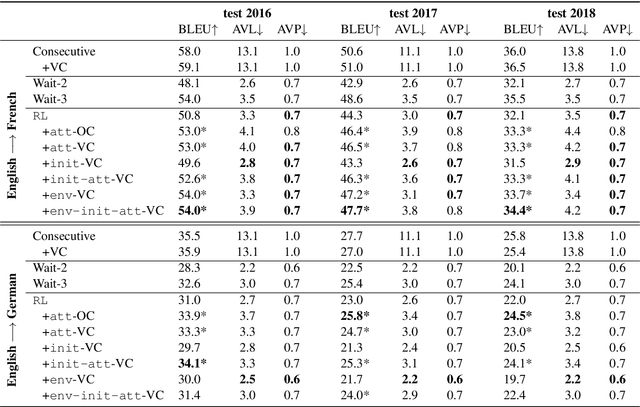Andy Mingren Li
Exploiting Multimodal Reinforcement Learning for Simultaneous Machine Translation
Feb 22, 2021



Abstract:This paper addresses the problem of simultaneous machine translation (SiMT) by exploring two main concepts: (a) adaptive policies to learn a good trade-off between high translation quality and low latency; and (b) visual information to support this process by providing additional (visual) contextual information which may be available before the textual input is produced. For that, we propose a multimodal approach to simultaneous machine translation using reinforcement learning, with strategies to integrate visual and textual information in both the agent and the environment. We provide an exploration on how different types of visual information and integration strategies affect the quality and latency of simultaneous translation models, and demonstrate that visual cues lead to higher quality while keeping the latency low.
 Add to Chrome
Add to Chrome Add to Firefox
Add to Firefox Add to Edge
Add to Edge